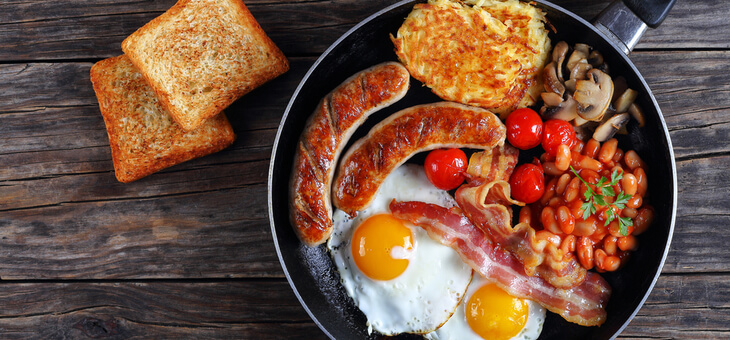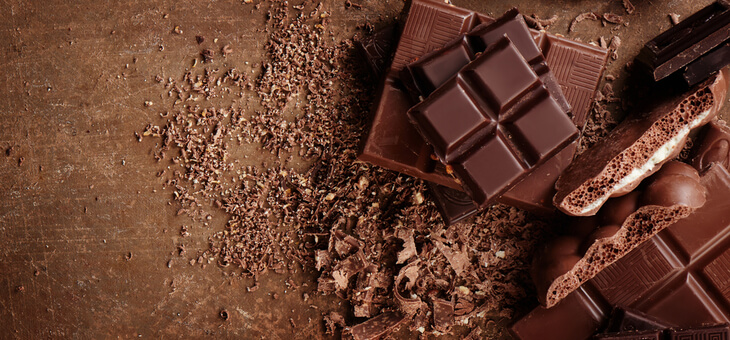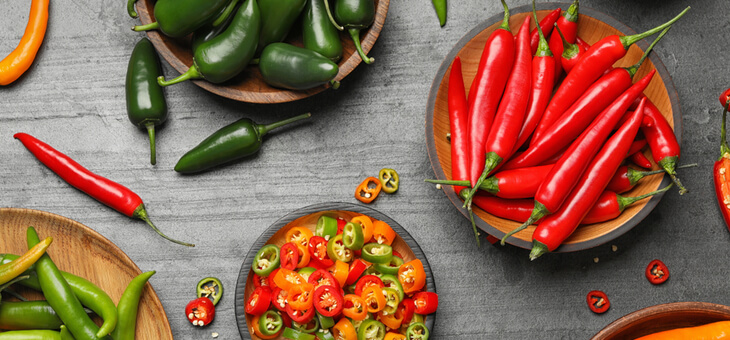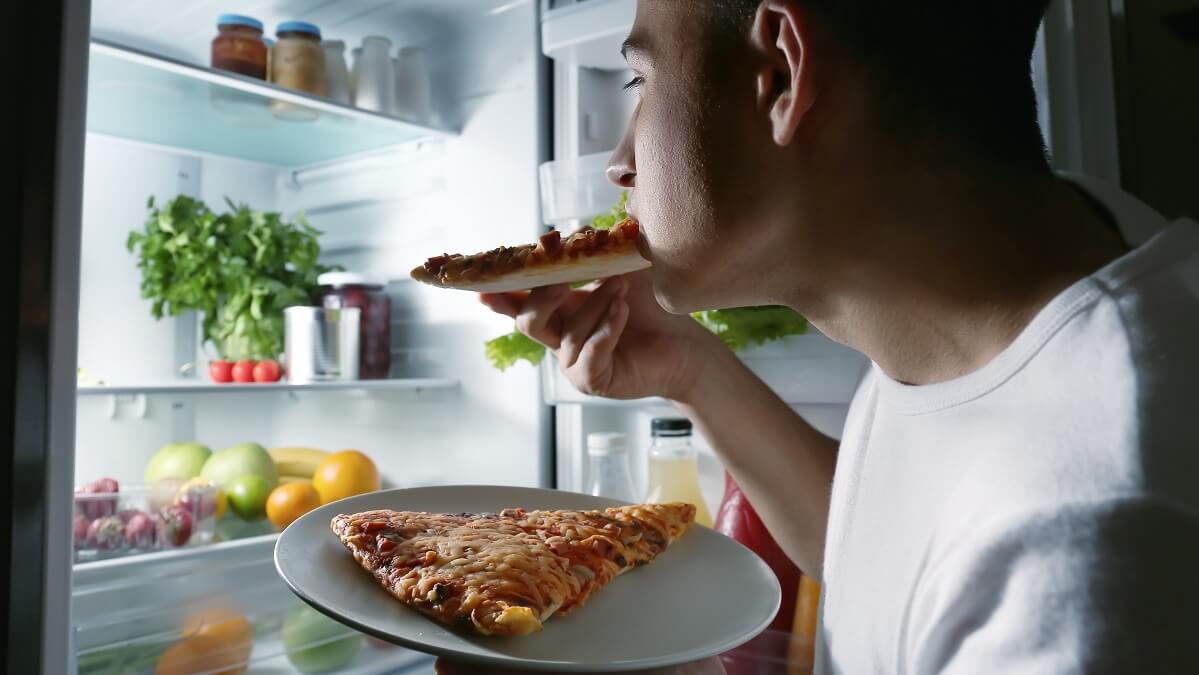Who doesn’t love tucking into a bowl of popcorn while watching TV of an evening?
While the occasional bedtime snack is fine, ending every day with a treat may be affecting more than just your waistline.
“Snacking later into the night increases the chance of weight gain, obesity, and cardiometabolic diseases,” says registered dietitian Kristin Kirkpatrick.
If your cravings for sweet, salty or carbohydrate heavy foods kick up a notch at night, you can confidently blame your body’s instinctual survival mechanisms. Research has shown that our circadian rhythm raises our hunger level in the evenings.
A desire to eat high-calorie foods before sleep might’ve helped our ancestors survive when food was scarce. But in today’s world, late-night cravings can add unnecessary calories and even affect our sleep.
“To offset these innate cravings, I have found that your first defence should be drinking a glass of water or caffeine-free tea, rather than heading to the snack pantry,” Ms Kirkpatrick says.
If you are truly hungry or don’t want to cut out your evening snack completely, here are the foods to snack on and those to skip.
Foods to reach for

Tart cherries or juice
Fresh cherries and tart cherry juice are known to promote sleepiness thanks to the melatonin boost they provide. Melatonin regulates your internal clock and signals your body to prepare for sleep.
They also contain modest amounts of a few important nutrients including magnesium, phosphorus and potassium.
Tart cherry juice has been studied for its role in relieving insomnia.
In a small study, adults with insomnia drank 240ml of tart cherry juice twice a day for two weeks. They slept 84 minutes longer and reported better sleep quality compared to when they didn’t drink the juice.
Just make sure you’re reaching for 100 per cent fruit juice and not a concentrate that’s bursting with sugar.

Almonds
“A small handful of almonds will satisfy cravings and hunger while inducing sleepiness,” says Ms Kirkpatrick.
As well as making you feel sleepy, almonds may improve sleep quality thanks to the melatonin and magnesium they contain.
Magnesium’s role in promoting sleep is thought to be related to its ability to reduce inflammation. Additionally, it may help reduce levels of the stress hormone cortisol, which is known to interrupt sleep.
Just ensure the nuts have low or no added sodium, because “salt can disrupt the sleeping cycle”, says Ms Kirkpatrick. And keep calories and fat in check by sticking to a small handful per serving.

Turkey
Turkey is high in protein but low in fat, which is a great combination for a bedtime snack. Research shows that consuming moderate amounts of protein before bed is associated with better sleep quality, including less waking up throughout the night.
Also, turkey contains the amino acid tryptophan, which increases the production of melatonin.

Yoghurt
Yoghurt is probably better known for keeping your bones strong, thanks to the high calcium content. But this mineral has recently also been linked to better sleep.
Your body needs calcium to make melatonin from the amino acid tryptophan.
If yoghurt is your snack of choice, opt for plain and flavour it with unsweetened fruit, such as berries or peaches.

Kiwifruit
These are low calorie and packed with nutrients. They may also be one of the best foods to eat before bed.
In a four-week study, 24 adults consumed two kiwifruit one hour before going to bed each night. At the end of the study, participants fell asleep 42 per cent quicker than when they didn’t eat anything before bedtime.
Additionally, their ability to sleep through the night without waking improved by 5 per cent.
The sleep-promoting effects of kiwis are typically attributed to serotonin, the brain chemical that helps regulate your sleep cycle.
Foods to avoid

Fried food
Fried foods are typically high in fat, and fat takes longer to digest than carbs and protein. This is a bad idea when it comes to bedtime snacks. “Ingesting heavy, greasy foods before bed can shift the body’s focus away from sleep,” says Ms Kirkpatrick.
“Fried foods are also more likely to induce heartburn and other discomforts, making it more difficult for the body to rest before bed,” she says.

Ice cream
Traditional ice cream is high in unhealthy saturated fats and added sugars, which can trigger cravings that lead to overeating. A large dose of sugar before bed can make it difficult to get to sleep and stay asleep.

Chocolate
Like ice cream, chocolate tends to be high in sugar, meaning it’s not the wisest option for a bedtime snack. If you think you can skip the sugar and reach for the dark stuff, be wary of the caffeine content. Typically, the darker the chocolate, the more caffeine it contains.

Spicy food
Spices are perfect for adding a zing of flavour to your favourite dishes, but they could be ruining your chance at decent shuteye.
Eating spicy foods right before bed can cause indigestion and discomfort. Research also suggests that capsaicin, a compound found in spicy foods, may increase body temperature, thereby interfering with sleep.

Potato chips
This classic late-night snack is typically high in unhealthy fats and empty calories.
It takes a lot of work for your body to digest fats, so it’s likely you’ll be tossing and turning for a few hours after consuming.
If you’re craving something similar, try freshly popped popcorn. Popcorn is a complex carbohydrate that can boost serotonin. Stick to a small portion so your digestive system doesn’t go into overdrive and you’re not trying to fall asleep with a full stomach.
What’s your go-to bedtime snack? Share your favourites in the comments section below.
Also read: Scientists find eating nuts can improve your sexual function

